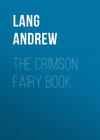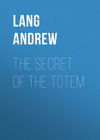Kitabı oku: «The Crimson Fairy Book», sayfa 14
And so they were.
[From Ungarische Mahrchen.]
The Death Of Abu Nowas And Of His Wife
Once upon a time there lived a man whose name was Abu Nowas, and he was a great favourite with the Sultan of the country, who had a palace in the same town where Abu Nowas dwelt.
One day Abu Nowas came weeping into the hall of the palace where the Sultan was sitting, and said to him: ‘Oh, mighty Sultan, my wife is dead.’
‘That is bad news,’ replied the Sultan; ‘I must get you another wife.’ And he bade his Grand Vizir send for the Sultana.
‘This poor Abu Nowas has lost his wife,’ said he, when she entered the hall.
‘Oh, then we must get him another,’ answered the Sultana; ‘I have a girl that will suit him exactly,’ and clapped her hands loudly. At this signal a maiden appeared and stood before her.
‘I have got a husband for you,’ said the Sultana.
‘Who is he?’ asked the girl.
‘Abu Nowas, the jester,’ replied the Sultana.
‘I will take him,’ answered the maiden; and as Abu Nowas made no objection, it was all arranged. The Sultana had the most beautiful clothes made for the bride, and the Sultan gave the bridegroom his wedding suit, and a thousand gold pieces into the bargain, and soft carpets for the house.
So Abu Nowas took his wife home, and for some time they were very happy, and spent the money freely which the Sultan had given them, never thinking what they should do for more when that was gone. But come to an end it did, and they had to sell their fine things one by one, till at length nothing was left but a cloak apiece, and one blanket to cover them. ‘We have run through our fortune,’ said Abu Nowas, ‘what are we to do now? I am afraid to go back to the Sultan, for he will command his servants to turn me from the door. But you shall return to your mistress, and throw yourself at her feet and weep, and perhaps she will help us.’
‘Oh, you had much better go,’ said the wife. ‘I shall not know what to say.’
‘Well, then, stay at home, if you like,’ answered Abu Nowas, ‘and I will ask to be admitted to the Sultan’s presence, and will tell him, with sobs, that my wife is dead, and that I have no money for her burial. When he hears that perhaps he will give us something.’
‘Yes, that is a good plan,’ said the wife; and Abu Nowas set out.
The Sultan was sitting in the hall of justice when Abu Nowas entered, his eyes streaming with tears, for he had rubbed some pepper into them. They smarted dreadfully, and he could hardly see to walk straight, and everyone wondered what was the matter with him.
‘Abu Nowas! What has happened?’ cried the Sultan.
‘Oh, noble Sultan, my wife is dead,’ wept he.
‘We must all die,’ answered the Sultan; but this was not the reply for which Abu Nowas had hoped.
‘True, O Sultan, but I have neither shroud to wrap her in, nor money to bury her with,’ went on Abu Nowas, in no wise abashed by the way the Sultan had received his news.
‘Well, give him a hundred pieces of gold,’ said the Sultan, turning to the Grand Vizir. And when the money was counted out Abu Nowas bowed low, and left the hall, his tears still flowing, but with joy in his heart.
‘Have you got anything?’ cried his wife, who was waiting for him anxiously.
‘Yes, a hundred gold pieces,’ said he, throwing down the bag, ‘but that will not last us any time. Now you must go to the Sultana, clothed in sackcloth and robes of mourning, and tell her that your husband, Abu Nowas, is dead, and you have no money for his burial. When she hears that, she will be sure to ask you what has become of the money and the fine clothes she gave us on our marriage, and you will answer, “before he died he sold everything.”’
The wife did as she was told, and wrapping herself in sackcloth went up to the Sultana’s own palace, and as she was known to have been one of Subida’s favourite attendants, she was taken without difficulty into the private apartments.
‘What is the matter?’ inquired the Sultana, at the sight of the dismal figure.
‘My husband lies dead at home, and he has spent all our money, and sold everything, and I have nothing left to bury him with,’ sobbed the wife.
Then Subida took up a purse containing two hundred gold pieces, and said: ‘Your husband served us long and faithfully. You must see that he has a fine funeral.’
The wife took the money, and, kissing the feet of the Sultana, she joyfully hastened home. They spent some happy hours planning how they should spend it, and thinking how clever they had been. ‘When the Sultan goes this evening to Subida’s palace,’ said Abu Nowas, ‘she will be sure to tell him that Abu Nowas is dead. “Not Abu Nowas, it is his wife,” he will reply, and they will quarrel over it, and all the time we shall be sitting here enjoying ourselves. Oh, if they only knew, how angry they would be!’
As Abu Nowas had foreseen, the Sultan went, in the evening after his business was over, to pay his usual visit to the Sultana.
‘Poor Abu Nowas is dead!’ said Subida when he entered the room.
‘It is not Abu Nowas, but his wife who is dead,’ answered the Sultan.
‘No; really you are quite wrong. She came to tell me herself only a couple of hours ago,’ replied Subida, ‘and as he had spent all their money, I gave her something to bury him with.’
‘You must be dreaming,’ exclaimed the Sultan. ‘Soon after midday Abu Nowas came into the hall, his eyes streaming with tears, and when I asked him the reason he answered that his wife was dead, and they had sold everything they had, and he had nothing left, not so much as would buy her a shroud, far less for her burial.’
For a long time they talked, and neither would listen to the other, till the Sultan sent for the door-keeper and bade him go instantly to the house of Abu Nowas and see if it was the man or his wife who was dead. But Abu Nowas happened to be sitting with his wife behind the latticed window, which looked on the street, and he saw the man coming, and sprang up at once. ‘There is the Sultan’s door-keeper! They have sent him here to find out the truth. Quick! throw yourself on the bed and pretend that you are dead.’ And in a moment the wife was stretched out stiffly, with a linen sheet spread across her, like a corpse.
She was only just in time, for the sheet was hardly drawn across her when the door opened and the porter came in. ‘Has anything happened?’ asked he.
‘My poor wife is dead,’ replied Abu Nowas. ‘Look! she is laid out here.’ And the porter approached the bed, which was in a corner of the room, and saw the stiff form lying underneath.
‘We must all die,’ said he, and went back to the Sultan.
‘Well, have you found out which of them is dead?’ asked the Sultan.
‘Yes, noble Sultan; it is the wife,’ replied the porter.
‘He only says that to please you,’ cried Subida in a rage; and calling to her chamberlain, she ordered him to go at once to the dwelling of Abu Nowas and see which of the two was dead. ‘And be sure you tell the truth about it,’ added she, ‘or it will be the worse for you.’
As her chamberlain drew near the house, Abu Nowas caught sight of him. ‘There is the Sultana’s chamberlain,’ he exclaimed in a fright. ‘Now it is my turn to die. Be quick and spread the sheet over me.’ And he laid himself on the bed, and held his breath when the chamberlain came in. ‘What are you weeping for?’ asked the man, finding the wife in tears.
‘My husband is dead,’ answered she, pointing to the bed; and the chamberlain drew back the sheet and beheld Abu Nowas lying stiff and motionless. Then he gently replaced the sheet and returned to the palace.
‘Well, have you found out this time?’ asked the Sultan.
‘My lord, it is the husband who is dead.’
‘But I tell you he was with me only a few hours ago,’ cried the Sultan angrily. ‘I must get to the bottom of this before I sleep! Let my golden coach be brought round at once.’
The coach was before the door in another five minutes, and the Sultan and Sultana both got in. Abu Nowas had ceased being a dead man, and was looking into the street when he saw the coach coming. ‘Quick! quick!’ he called to his wife. ‘The Sultan will be here directly, and we must both be dead to receive him.’ So they laid themselves down, and spread the sheet over them, and held their breath. At that instant the Sultan entered, followed by the Sultana and the chamberlain, and he went up to the bed and found the corpses stiff and motionless. ‘I would give a thousand gold pieces to anyone who would tell me the truth about this,’ cried he, and at the words Abu Nowas sat up. ‘Give them to me, then,’ said he, holding out his hand. ‘You cannot give them to anyone who needs them more.’
‘Oh, Abu Nowas, you impudent dog!’ exclaimed the Sultan, bursting into a laugh, in which the Sultana joined. ‘I might have known it was one of your tricks!’ But he sent Abu Nowas the gold he had promised, and let us hope that it did not fly so fast as the last had done.
[From Tunische Mahrchen.]
Motiratika
Once upon a time, in a very hot country, a man lived with his wife in a little hut, which was surrounded by grass and flowers. They were perfectly happy together till, by-and-by, the woman fell ill and refused to take any food. The husband tried to persuade her to eat all sorts of delicious fruits that he had found in the forest, but she would have none of them, and grew so thin he feared she would die. ‘Is there nothing you would like?’ he said at last in despair.
‘Yes, I think I could eat some wild honey,’ answered she. The husband was overjoyed, for he thought this sounded easy enough to get, and he went off at once in search of it.
He came back with a wooden pan quite full, and gave it to his wife. ‘I can’t eat that,’ she said, turning away in disgust. ‘Look! there are some dead bees in it! I want honey that is quite pure.’ And the man threw the rejected honey on the grass, and started off to get some fresh. When he got back he offered it to his wife, who treated it as she had done the first bowlful. ‘That honey has got ants in it: throw it away,’ she said, and when he brought her some more, she declared it was full of earth. In his fourth journey he managed to find some that she would eat, and then she begged him to get her some water. This took him some time, but at length he came to a lake whose waters were sweetened with sugar. He filled a pannikin quite full, and carried it home to his wife, who drank it eagerly, and said that she now felt quite well. When she was up and had dressed herself, her husband lay down in her place, saying: ‘You have given me a great deal of trouble, and now it is my turn!’
‘What is the matter with you?’ asked the wife.
‘I am thirsty and want some water,’ answered he; and she took a large pot and carried it to the nearest spring, which was a good way off. ‘Here is the water,’ she said to her husband, lifting the heavy pot from her head; but he turned away in disgust.
‘You have drawn it from the pool that is full of frogs and willows; you must get me some more.’ So the woman set out again and walked still further to another lake.
‘This water tastes of rushes,’ he exclaimed, ‘go and get some fresh.’ But when she brought back a third supply he declared that it seemed made up of water-lilies, and that he must have water that was pure, and not spoilt by willows, or frogs, or rushes. So for the fourth time she put her jug on her head, and passing all the lakes she had hitherto tried, she came to another, where the water was golden like honey. She stooped down to drink, when a horrible head bobbed up on the surface.
‘How dare you steal my water?’ cried the head.
‘It is my husband who has sent me,’ she replied, trembling all over. ‘But do not kill me! You shall have my baby, if you will only let me go.’
‘How am I to know which is your baby?’ asked the Ogre.
‘Oh, that is easily managed. I will shave both sides of his head, and hang some white beads round his neck. And when you come to the hut you have only to call “Motikatika!” and he will run to meet you, and you can eat him.’
‘Very well,’ said the ogre, ‘you can go home.’ And after filling the pot she returned, and told her husband of the dreadful danger she had been in.
Now, though his mother did not know it, the baby was a magician and he had heard all that his mother had promised the ogre; and he laughed to himself as he planned how to outwit her.
The next morning she shaved his head on both sides, and hung the white beads round his neck, and said to him: ‘I am going to the fields to work, but you must stay at home. Be sure you do not go outside, or some wild beast may eat you.’
‘Very well,’ answered he.
As soon as his mother was out of sight, the baby took out some magic bones, and placed them in a row before him. ‘You are my father,’ he told one bone, ‘and you are my mother. You are the biggest,’ he said to the third, ‘so you shall be the ogre who wants to eat me; and you,’ to another, ‘are very little, therefore you shall be me. Now, then, tell me what I am to do.’
‘Collect all the babies in the village the same size as yourself,’ answered the bones; ‘shave the sides of their heads, and hang white beads round their necks, and tell them that when anybody calls “Motikatika,” they are to answer to it. And be quick for you have no time to lose.’
Motikatika went out directly, and brought back quite a crowd of babies, and shaved their heads and hung white beads round their little black necks, and just as he had finished, the ground began to shake, and the huge ogre came striding along, crying: ‘Motikatika! Motikatika!’
‘Here we are! here we are!’ answered the babies, all running to meet him.
‘It is Motikatika I want,’ said the ogre.
‘We are all Motikatika,’ they replied. And the ogre sat down in bewilderment, for he dared not eat the children of people who had done him no wrong, or a heavy punishment would befall him. The children waited for a little, wondering, and then they went away.
The ogre remained where he was, till the evening, when the woman returned from the fields.
‘I have not seen Motikatika,’ said he.
‘But why did you not call him by his name, as I told you?’ she asked.
‘I did, but all the babies in the village seemed to be named Motikatika,’ answered the ogre; ‘you cannot think the number who came running to me.’
The woman did not know what to make of it, so, to keep him in a good temper, she entered the hut and prepared a bowl of maize, which she brought him.
‘I do not want maize, I want the baby,’ grumbled he ‘and I will have him.’
‘Have patience,’ answered she; ‘I will call him, and you can eat him at once.’ And she went into the hut and cried, ‘Motikatika!’
‘I am coming, mother,’ replied he; but first he took out his bones, and, crouching down on the ground behind the hut, asked them how he should escape the ogre.
‘Change yourself into a mouse,’ said the bones; and so he did, and the ogre grew tired of waiting, and told the woman she must invent some other plan.
‘To-morrow I will send him into the field to pick some beans for me, and you will find him there, and can eat him.’
‘Very well,’ replied the ogre, ‘and this time I will take care to have him,’ and he went back to his lake.
Next morning Motikatika was sent out with a basket, and told to pick some beans for dinner. On the way to the field he took out his bones and asked them what he was to do to escape from the ogre. ‘Change yourself into a bird and snap off the beans,’ said the bones. And the ogre chased away the bird, not knowing that it was Motikatika.
The ogre went back to the hut and told the woman that she had deceived him again, and that he would not be put off any longer.
‘Return here this evening,’ answered she, ‘and you will find him in bed under this white coverlet. Then you can carry him away, and eat him at once.’
But the boy heard, and consulted his bones, which said: ‘Take the red coverlet from your father’s bed, and put yours on his,’ and so he did. And when the ogre came, he seized Motikatika’s father and carried him outside the hut and ate him. When his wife found out the mistake, she cried bitterly; but Motikatika said: ‘It is only just that he should be eaten, and not I; for it was he, and not I, who sent you to fetch the water.’
[Adapted from the Ba-Ronga (H. Junod).]
Niels And The Giants
On one of the great moors over in Jutland, where trees won’t grow because the soil is so sandy and the wind so strong, there once lived a man and his wife, who had a little house and some sheep, and two sons who helped them to herd them. The elder of the two was called Rasmus, and the younger Niels. Rasmus was quite content to look after sheep, as his father had done before him, but Niels had a fancy to be a hunter, and was not happy till he got hold of a gun and learned to shoot. It was only an old muzzle-loading flint-lock after all, but Niels thought it a great prize, and went about shooting at everything he could see. So much did he practice that in the long run he became a wonderful shot, and was heard of even where he had never been seen. Some people said there was very little in him beyond this, but that was an idea they found reason to change in the course of time.
The parents of Rasmus and Niels were good Catholics, and when they were getting old the mother took it into her head that she would like to go to Rome and see the Pope. The others didn’t see much use in this, but she had her way in the end: they sold all the sheep, shut up the house, and set out for Rome on foot. Niels took his gun with him.
‘What do you want with that?’ said Rasmus; ‘we have plenty to carry without it.’ But Niels could not be happy without his gun, and took it all the same.
It was in the hottest part of summer that they began their journey, so hot that they could not travel at all in the middle of the day, and they were afraid to do it by night lest they might lose their way or fall into the hands of robbers. One day, a little before sunset, they came to an inn which lay at the edge of a forest.
‘We had better stay here for the night,’ said Rasmus.
‘What an idea!’ said Niels, who was growing impatient at the slow progress they were making. ‘We can’t travel by day for the heat, and we remain where we are all night. It will be long enough before we get to Rome if we go on at this rate.’
Rasmus was unwilling to go on, but the two old people sided with Niels, who said, ‘The nights aren’t dark, and the moon will soon be up. We can ask at the inn here, and find out which way we ought to take.’
So they held on for some time, but at last they came to a small opening in the forest, and here they found that the road split in two. There was no sign-post to direct them, and the people in the inn had not told them which of the two roads to take.
‘What’s to be done now?’ said Rasmus. ‘I think we had better have stayed at the inn.’
‘There’s no harm done,’ said Niels. ‘The night is warm, and we can wait here till morning. One of us will keep watch till midnight, and then waken the other.’
Rasmus chose to take the first watch, and the others lay down to sleep. It was very quiet in the forest, and Rasmus could hear the deer and foxes and other animals moving about among the rustling leaves. After the moon rose he could see them occasionally, and when a big stag came quite close to him he got hold of Niels’ gun and shot it.
Niels was wakened by the report. ‘What’s that?’ he said.
‘I’ve just shot a stag,’ said Rasmus, highly pleased with himself.
‘That’s nothing,’ said Niels. ‘I’ve often shot a sparrow, which is a much more difficult thing to do.’
It was now close on midnight, so Niels began his watch, and Rasmus went to sleep. It began to get colder, and Niels began to walk about a little to keep himself warm. He soon found that they were not far from the edge of the forest, and when he climbed up one of the trees there he could see out over the open country beyond. At a little distance he saw a fire, and beside it there sat three giants, busy with broth and beef. They were so huge that the spoons they used were as large as spades, and their forks as big as hay-forks: with these they lifted whole bucketfuls of broth and great joints of meat out of an enormous pot which was set on the ground between them. Niels was startled and rather scared at first, but he comforted himself with the thought that the giants were a good way off, and that if they came nearer he could easily hide among the bushes. After watching them for a little, however, he began to get over his alarm, and finally slid down the tree again, resolved to get his gun and play some tricks with them.
When he had climbed back to his former position, he took good aim, and waited till one of the giants was just in the act of putting a large piece of meat into his mouth. Bang! went Niels’ gun, and the bullet struck the handle of the fork so hard that the point went into the giant’s chin, instead of his mouth.
‘None of your tricks,’ growled the giant to the one who sat next him. ‘What do you mean by hitting my fork like that, and making me prick myself?’
‘I never touched your fork,’ said the other. ‘Don’t try to get up a quarrel with me.’
‘Look at it, then,’ said the first. ‘Do you suppose I stuck it into my own chin for fun?’
The two got so angry over the matter that each offered to fight the other there and then, but the third giant acted as peace-maker, and they again fell to their eating.
While the quarrel was going on, Niels had loaded the gun again, and just as the second giant was about to put a nice tit-bit into his mouth, bang! went the gun again, and the fork flew into a dozen pieces.
This giant was even more furious than the first had been, and words were just coming to blows, when the third giant again interposed.
‘Don’t be fools,’ he said to them; ‘what’s the good of beginning to fight among ourselves, when it is so necessary for the three of us to work together and get the upper hand over the king of this country. It will be a hard enough task as it is, but it will be altogether hopeless if we don’t stick together. Sit down again, and let us finish our meal; I shall sit between you, and then neither of you can blame the other.’
Niels was too far away to hear their talk, but from their gestures he could guess what was happening, and thought it good fun.
‘Thrice is lucky,’ said he to himself; ‘I’ll have another shot yet.’
This time it was the third giant’s fork that caught the bullet, and snapped in two.
‘Well,’ said he, ‘if I were as foolish as you two, I would also fly into a rage, but I begin to see what time of day it is, and I’m going off this minute to see who it is that’s playing these tricks with us.’
So well had the giant made his observations, that though Niels climbed down the tree as fast as he could, so as to hide among the bushes, he had just got to the ground when the enemy was upon him.
‘Stay where you are,’ said the giant, ‘or I’ll put my foot on you, and there won’t be much of you left after that.’
Niels gave in, and the giant carried him back to his comrades.
‘You don’t deserve any mercy at our hands,’ said his captor ‘but as you are such a good shot you may be of great use to us, so we shall spare your life, if you will do us a service. Not far from here there stands a castle, in which the king’s daughter lives; we are at war with the king, and want to get the upper hand of him by carrying off the princess, but the castle is so well guarded that there is no getting into it. By our skill in magic we have cast sleep on every living thing in the castle, except a little black dog, and, as long as he is awake, we are no better off than before; for, as soon as we begin to climb over the wall, the little dog will hear us, and its barking will waken all the others again. Having got you, we can place you where you will be able to shoot the dog before it begins to bark, and then no one can hinder us from getting the princess into our hands. If you do that, we shall not only let you off, but reward you handsomely.’
Niels had to consent, and the giants set out for the castle at once. It was surrounded by a very high rampart, so high that even the giants could not touch the top of it. ‘How am I to get over that?’ said Niels.
‘Quite easily,’ said the third giant; ‘I’ll throw you up on it.’
‘No, thanks,’ said Niels. ‘I might fall down on the other side, or break my leg or neck, and then the little dog wouldn’t get shot after all.’
‘No fear of that,’ said the giant; ‘the rampart is quite wide on the top, and covered with long grass, so that you will come down as softly as though you fell on a feather-bed.’
Niels had to believe him, and allowed the giant to throw him up. He came down on his feet quite unhurt, but the little black dog heard the dump, and rushed out of its kennel at once. It was just opening its mouth to bark, when Niels fired, and it fell dead on the spot.
‘Go down on the inside now,’ said the giant, ‘and see if you can open the gate to us.’
Niels made his way down into the courtyard, but on his way to the outer gate he found himself at the entrance to the large hall of the castle. The door was open, and the hall was brilliantly lighted, though there was no one to be seen. Niels went in here and looked round him: on the wall there hung a huge sword without a sheath, and beneath it was a large drinking-horn, mounted with silver. Niels went closer to look at these, and saw that the horn had letters engraved on the silver rim: when he took it down and turned it round, he found that the inscription was: —
Whoever drinks the wine I hold
Can wield the sword that hangs above;
Then let him use it for the right,
And win a royal maiden’s love.
Niels took out the silver stopper of the horn, and drank some of the wine, but when he tried to take down the sword he found himself unable to move it. So he hung up the horn again, and went further in to the castle. ‘The giants can wait a little,’ he said.
Before long he came to an apartment in which a beautiful princess lay asleep in a bed, and on a table by her side there lay a gold-hemmed handkerchief. Niels tore this in two, and put one half in his pocket, leaving the other half on the table. On the floor he saw a pair of gold-embroidered slippers, and one of these he also put in his pocket. After that he went back to the hall, and took down the horn again. ‘Perhaps I have to drink all that is in it before I can move the sword,’ he thought; so he put it to his lips again and drank till it was quite empty. When he had done this, he could wield the sword with the greatest of ease, and felt himself strong enough to do anything, even to fight the giants he had left outside, who were no doubt wondering why he had not opened the gate to them before this time. To kill the giants, he thought, would be using the sword for the right; but as to winning the love of the princess, that was a thing which the son of a poor sheep-farmer need not hope for.
When Niels came to the gate of the castle, he found that there was a large door and a small one, so he opened the latter.
‘Can’t you open the big door?’ said the giants; ‘we shall hardly be able to get in at this one.’
‘The bars are too heavy for me to draw,’ said Niels; ‘if you stoop a little you can quite well come in here.’ The first giant accordingly bent down and entered in a stooping posture, but before he had time to straighten his back again Niels made a sweep with the sword, and oft went the giant’s head. To push the body aside as it fell was quite easy for Niels, so strong had the wine made him, and the second giant as he entered met the same reception. The third was slower in coming, so Niels called out to him: ‘Be quick,’ he said, ‘you are surely the oldest of the three, since you are so slow in your movements, but I can’t wait here long; I must get back to my own people as soon as possible.’ So the third also came in, and was served in the same way. It appears from the story that giants were not given fair play!
By this time day was beginning to break, and Niels thought that his folks might already be searching for him, so, instead of waiting to see what took place at the castle, he ran off to the forest as fast as he could, taking the sword with him. He found the others still asleep, so he woke them up, and they again set out on their journey. Of the night’s adventures he said not a word, and when they asked where he got the sword, he only pointed in the direction of the castle, and said, ‘Over that way.’ They thought he had found it, and asked no more questions.
When Niels left the castle, he shut the door behind him, and it closed with such a bang that the porter woke up. He could scarcely believe his eyes when he saw the three headless giants lying in a heap in the courtyard, and could not imagine what had taken place. The whole castle was soon aroused, and then everybody wondered at the affair: it was soon seen that the bodies were those of the king’s great enemies, but how they came to be there and in that condition was a perfect mystery. Then it was noticed that the drinking-horn was empty and the sword gone, while the princess reported that half of her handkerchief and one of her slippers had been taken away. How the giants had been killed seemed a little clearer now, but who had done it was as great a puzzle as before. The old knight who had charge of the castle said that in his opinion it must have been some young knight, who had immediately set off to the king to claim the hand of the princess. This sounded likely, but the messenger who was sent to the Court returned with the news that no one there knew anything about the matter.
‘We must find him, however,’ said the princess; ‘for if he is willing to marry me I cannot in honour refuse him, after what my father put on the horn.’ She took council with her father’s wisest men as to what ought to be done, and among other things they advised her to build a house beside the highway, and put over the door this inscription: – ‘Whoever will tell the story of his life, may stay here three nights for nothing.’ This was done, and many strange tales were told to the princess, but none of the travellers said a word about the three giants.



![XXXII Ballades in Blue China [1885]](https://cdn.litres.ru/pub/c/cover_100/25230660.jpg)






